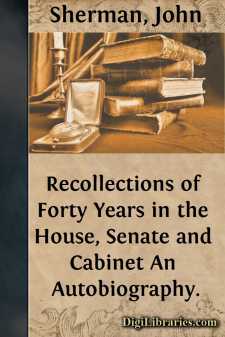Categories
- Antiques & Collectibles 13
- Architecture 36
- Art 48
- Bibles 22
- Biography & Autobiography 813
- Body, Mind & Spirit 142
- Business & Economics 28
- Children's Books 17
- Children's Fiction 14
- Computers 4
- Cooking 94
- Crafts & Hobbies 4
- Drama 346
- Education 46
- Family & Relationships 57
- Fiction 11829
- Games 19
- Gardening 17
- Health & Fitness 34
- History 1377
- House & Home 1
- Humor 147
- Juvenile Fiction 1873
- Juvenile Nonfiction 202
- Language Arts & Disciplines 88
- Law 16
- Literary Collections 686
- Literary Criticism 179
- Mathematics 13
- Medical 41
- Music 40
- Nature 179
- Non-Classifiable 1768
- Performing Arts 7
- Periodicals 1453
- Philosophy 64
- Photography 2
- Poetry 896
- Political Science 203
- Psychology 42
- Reference 154
- Religion 513
- Science 126
- Self-Help 84
- Social Science 81
- Sports & Recreation 34
- Study Aids 3
- Technology & Engineering 59
- Transportation 23
- Travel 463
- True Crime 29
Our website is made possible by displaying online advertisements to our visitors.
Please consider supporting us by disabling your ad blocker.
Recollections of Forty Years in the House, Senate and Cabinet An Autobiography.
by: John Sherman
Categories:
Description:
Excerpt
PREFACE
These Recollections grew out of a long deferred purpose to publish a selection of my speeches on public questions, but in collecting them it became manifest that they should be accompanied or preceded by a statement of the circumstances that attended their delivery. The attempt to furnish such a statement led to a review of the chief events of my public life, which covers the period extending from 1854 to the present time. The sectional trouble that preceded the Civil War, the war itself with all its attendant horrors and sacrifices, the abolition of slavery, the reconstruction measures, and the vast and unexampled progress of the republic in growth and development since the war, presented a topic worthy of a better historian than I am. Still, as my life was interwoven with these events, I concluded that it was better that I state my recollection of what I saw or heard or did in those stirring times rather than what I said. Whether this conclusion was a wise one the reader must judge. Egotism is a natural trait of mankind. If it is exhibited in a moderate degree we pardon it with a smile; if it is excessive we condemn it as a weakness. The life of one man is but an atom, but if it is connected with great events it shares in their dignity and importance. Influenced by this reasoning I concluded to postpone the publication of my speeches except so far as they are quoted or described in these memoirs.
When I entered upon their preparation the question arose whether the book to be written was to be of my life, including ancestry and boyhood, or to be confined to the financial history of the United States with which I was mainly identified. This was settled by the publishers, who were more interested in the number of copies they could sell than in the finances of the United States.
Every man has a theory of finance of his own, and is indifferent to any other. At best the subject is a dry one. Still, the problem of providing money to carry on the expensive operations of a great war, and to provide for the payment of the vast debt created during the war, was next in importance to the conduct of armies, and those who were engaged in solving this problem were as much soldiers as the men who were carrying muskets or commanding armies. As one of these I feel it my duty to present the measures adopted and to claim for them such merit as they deserve.
These volumes do contain the true history of the chief financial measures of the United States government during the past forty years. My hope is that those who read them will be able to correct the wild delusions of many honest citizens who became infected with the "greenback craze," or the "free coinage of silver."
My chief regret is that the limit of these volumes did not permit me to extend my narrative to the memorable battles and marches of the Civil War, nor to a more general notice of my associates who distinguished themselves in civil life. The omission of military narrative is admirably compensated by the memoirs of the great commanders on either side, and better yet by the vast collection and publication, by the United States, of the "Records of the Rebellion." The attempt to include in these volumes my estimate of distinguished men still living who participated in the events narrated would greatly extend them and might lead to injustice....


